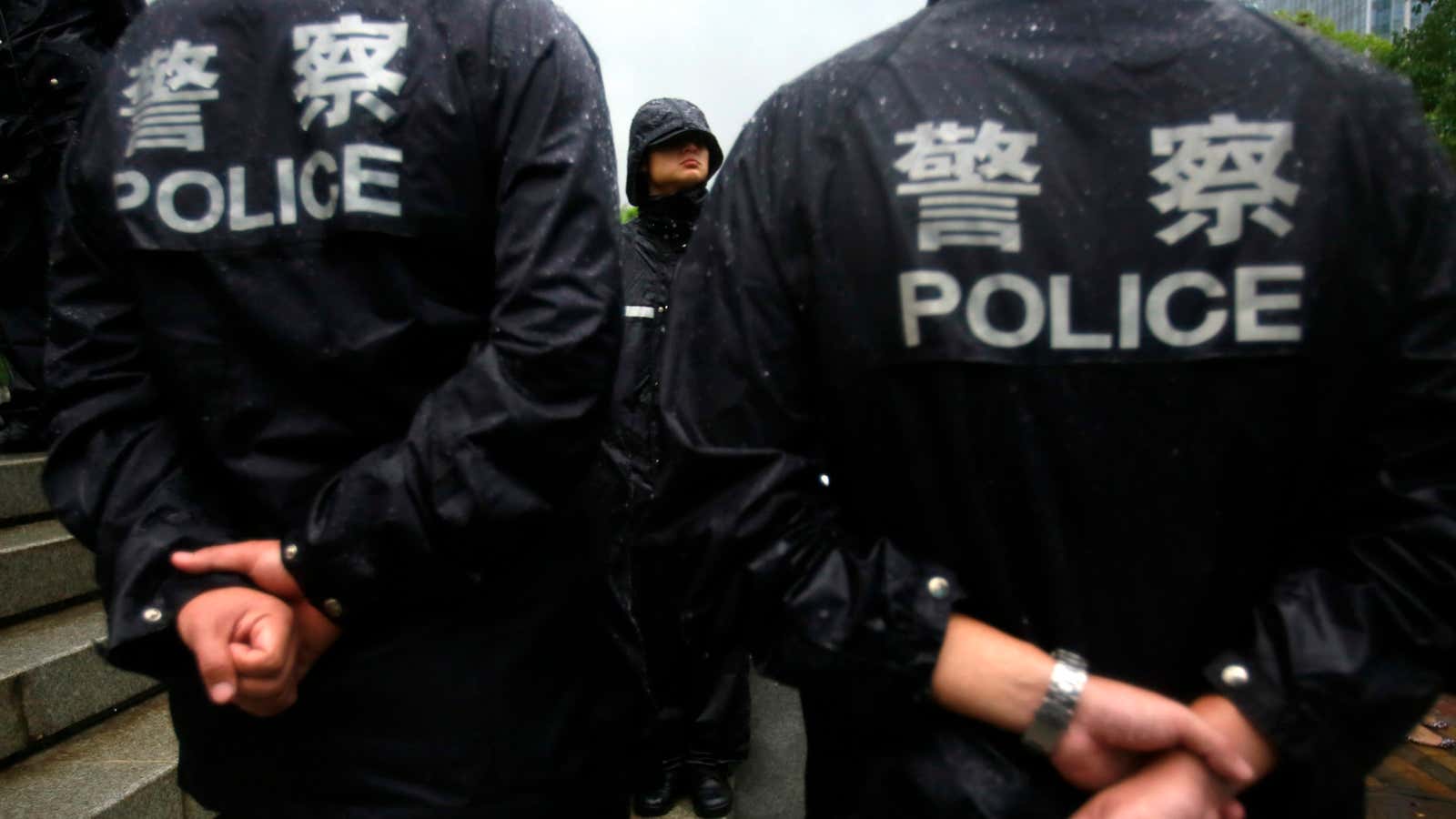Before a leadership handover that begins in November, the Chinese Communist Party (CCP) is trying to recover from months of political scandal that has reached the top echelons of power. The party wants to cast itself as an arbiter of justice and a force against corruption. But the public may have already seen too much.
Bo Xilai, the former party chief of Chongqing, was tipped to serve on China’s powerful Politburo Standing Committee before revelations that his wife helped murder a British businessman and he helped cover it up. He also faces charges of taking bribes and other unspecified crimes. Political corruption cases have often been handled quietly in the past; by dealing with Bo harshly and publicly, China’s elites want to show that the state will come down hard any official who violates the law, no matter what his standing.
Bo is an excellent person to make an example of. As the son of a revered revolutionary, he is a “princeling” and thus was closely aligned with China’s elite communists officials as well as the military (pdf). In a press conference on Oct. 8, He Guoqing, head of a party commission that overseas discipline of Chinese officials, proudly announced that the government has investigated over 660,000 officials over the past five years, though only 24,000 “were transferred to the judicial system for suspected crimes.” Bo’s case, as well as that of railways minister Liu Zhijun and former Shenzhen mayor Xu Zongheng, were “relentlessly pursued,” he said, adding:
The corrupt ones, no matter who are involved, will be relentlessly followed and will never be given a chance of escaping punishment in accordance with Party discipline and the law.
The CCP is also talking up its legal system, which it has promised (paywall) to aggressively reform since 2006. The Information Office of the State Council on Oct. 9 released a white paper on the country’s progress in judicial reform in establishing “an impartial, efficient and authoritative socialist judicial system” through offerings like free legal assistance, legal protections for lawyers, and carefully judged use of the death penalty.
In August, the government also tried Bo’s wife, Gu Kailai, in a semi-public trial. The suspended death sentence she got translates into life in prison. But her trial was seen as heavily stage-managed, with rumors circulating that Gu was not even present at the hearing. And even though Bo will probably get a stiff sentence, many will suspect the government of covering up some of his and his family’s alleged graft to avoid further embarrassment for the party. Christopher Johnson, a China expert at the Center for Strategic and International Studies in Washington DC says, ”There is tremendous skepticism in the public… so that even when they are throwing the book at him there is the perception that there is more to [the case].”
The Bo case creates another problem for the CCP too. It shows that corruption in China goes to the very top (paywall), giving the lie to a belief, long cultivated by the party, that it is confined to lower levels. Chinese have long tolerated corruption, the subject of cynical internet memes, jokes, and more rebelliously, popular art. But, says Johnson, “The more of these senior leaders and their families that get unveiled to be corrupt, the more jaded the Chinese public become.”
Corruption is hard to fight while Chinese officials remain accountable mainly to party higher-ups who dole out promotions, rather than to the public. Yet the CCP needs the broad support of the Chinese public to remain in power. Gordon Chang, a lawyer and author of The Coming Collapse of China, says that the CCP keeps an unofficial pact with the public whereby as long as residents grow wealthier as China’s economy grows, the majority of the masses remain compliant. Now, however, growth is slowing, and without much-needed reforms the public may turn its back on the government. In 2010, estimates of the number of protests per year in China ranged from 90,000 to 180,000 (paywall). Since then, the numbers are likely to have grown. If it can’t maintain its pact, Chang says, “I don’t think the Chinese Communist Party will survive much longer.”
